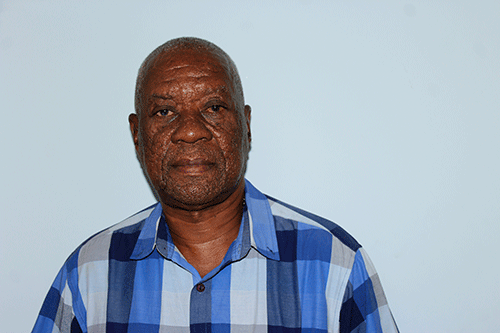Alexactu T Kaure
The hype is on about the 4IR in the West where the 1IR started in the industrial cities of Liverpool and Manchester which then spread to other parts of the world. And Africa is said to be ushering into the 4IR as well and we should be prepared for it. Our President, Hage Geingob, early this year appointed a 4IR panel to gauge Namibians readiness for the eventual landing of the 4IR on the Atlantic shore at Walvis Bay. Where is Africa in the broader trajectory of global intellectual development and relations in comparison to other continents?
The immediate question that any critical mind/intellectual should pose is: at which stage/level of industrial development is Africa? To answer that essentially contested idea, one has to define it first.
Industrial Revolution is defined “as the process of change from an agrarian and handicraft economy to one dominated by industry and machine manufacturing. These technological changes introduced novel ways of working and living and fundamentally transformed society (emphasis mine). This process began in Britain in the 18th century and from there spread to other parts of the world. Although used earlier by French writers, the term Industrial Revolution was first popularized by the English economic historian Arnold Toynbee to describe Britain’s economic development from 1760 to 1840. Since Toynbee’s time, the term has been more broadly applied as a process of economic transformation than as a period of time in a particular setting. This explains why some areas, such as China and India, did not begin their first industrial revolutions until the 20th century, while others, such as the United States and Western Europe, began undergoing ‘second’ industrial revolutions by the late 19th century.”
Broadly, that is the definition of what the IR was and still is. Curiously, there is no mention of Africa in this greater scheme of things. And by the way there is no mention of ICT and the internet of things to which so many of our scholars and their semi-literate leaders/politicians are cocooned in. What you have is Western Europe, Asia and the USA. Where does this leave Africa then? I would here controversially argue that if there are traces of the IR, then are those that were brought about by colonialism.
So, at what stage is Africa in the broader trajectory of global development? We are at no stage. Let me perhaps not be too harsh about Africa‘s claim to be marching into the 4IR and put a good part of the continent at the stage of the 2IR. Was colonialism a good or a bad thing? I see colonialism as a clash of civilization. They, the West, had superior technology – the guns, planes, whiskey and boats – they could sail the high seas. The Africans only had knobkerries, assegais, canoes, horses and donkeys.
That is why the Europeans managed to subdue and colonize the ‘natives’ here in Africa, Asia and the Americas using both the Bible, whiskey and the gun. But eventually, we would use their own weapons to fight against them in order to gain our political independence but surely not economic. There is today nothing African about Africa or is there? We are still living in the colonial presence. The products and gadgets that we so much worship/admire are Western and lately Eastern (Asian) made.
Thinking wishfully/parrots-like, that we are part of this global movement called the 4IR; what benefits are there for us? Here is what our over excited President Geingob had to say on Namibia’s road to the 4IR: “the country lends itself greatly to changing Namibia’s digital transformation landscape and narrowing the digital divide.”
But unfortunately, this excitement is not shared by everybody. Here is what one irate scholar has to say about 4IR. In his book: ‘The Fourth Industrial Revolution and the Recolonisation of Africa: The Coloniality of Data’, Everisto Benyera argues that the fourth industrial revolution, will serve to further marginalise Africa within the international community. He further argues that the looting of Africa that started with human capital and then natural resources now continues unabated via data and digital resources looting. Developing on the notion of “Coloniality of Data”, the fourth industrial revolution is postulated as the final phase which will conclude Africa’s peregrination towards recolonisation.
Global cartels, networks of coloniality, and tech multi-national corporations have turned Big Data into capital, which is left unguarded in Africa as the continent lacks the strong institutions necessary to regulate the mining of data. Written from a decolonial perspective, the author employs three analytical pillars of coloniality of power, knowledge and being.
Let me conclude my intervention on a lighter note. Some few weeks ago, I was in our village sitting under a tree, not at a poolside under a Lapa, with some friends. And I can’t quite remember how the issue of the IR came about.
But here I was trying to explain what the 4IR is to someone who has never owned a typewriter let alone a computer/laptop, never owned a cooler box let alone a refrigerator, never owned a radio let alone a TV, never owned a hotplate let alone a stove, never owned a bicycle let alone a motorbike, never owned a telephone let alone a cellphone, never owned a donkey cart let alone Jan Japan, never owned a Rotary let alone a Rolex.
But here we are saying we are closing the digital divide but we have been unable to close the material gap – inequality if you like. Finally, we have millions of people living in Anglophone, Francophone and Lusophone Africa who cannot speak the official languages of their respective countries let alone read and write and here you are talking about the 4IR men and women. What a myth!


